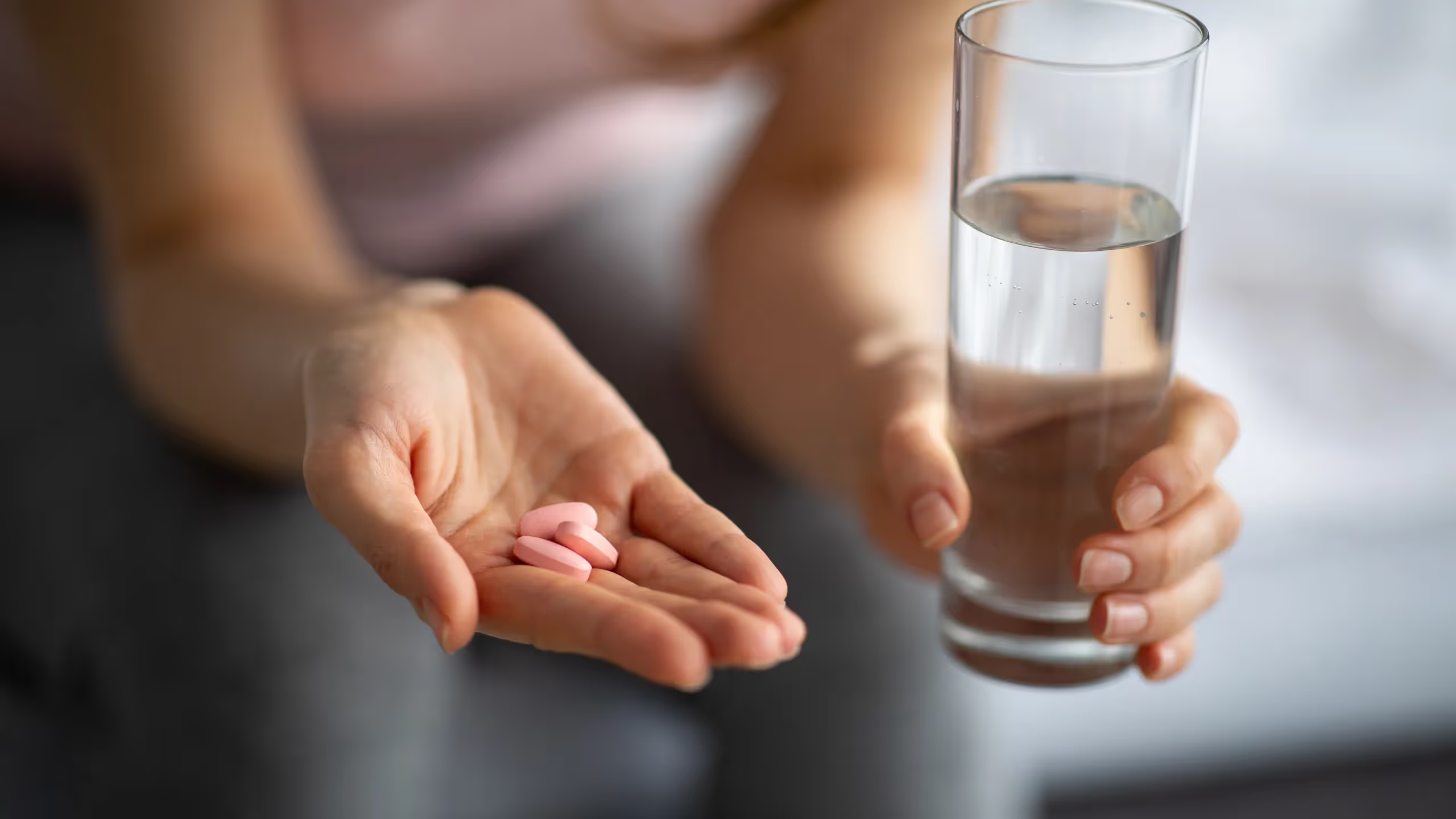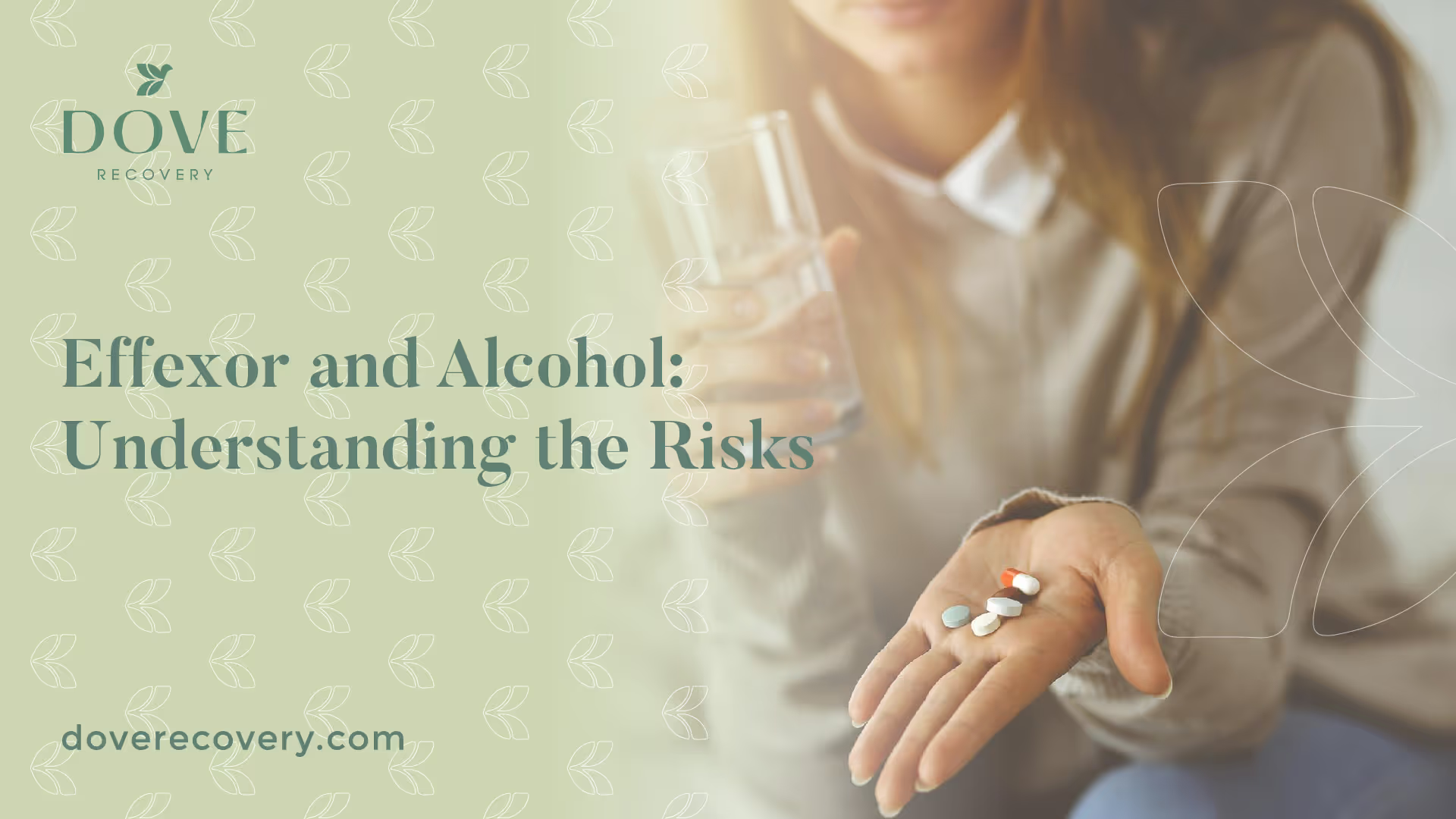Effexor and Alcohol: Understanding the Risks

What is Effexor?
Effexor is a prescription medication that has been a game-changer for those who struggle with depression and anxiety disorders. It is part of a class of drugs called serotonin-norepinephrine reuptake inhibitors (SNRIs), which are a relatively new type of antidepressant medication.

Effexor works by increasing the levels of certain chemicals in the brain that affect mood and emotions. These chemicals, called serotonin and norepinephrine, are neurotransmitters that play a key role in regulating mood, sleep, and appetite. By blocking the reuptake of these neurotransmitters, Effexor allows them to remain in the brain for longer periods of time, which can help alleviate symptoms of depression and anxiety.
Many people who take Effexor wonder if they can drink alcohol while on the medication. Here's what you need to know.
Is it Safe to Drink Alcohol While Taking Effexor?
The short answer is no, it is not safe to drink alcohol while taking Effexor.
If you are taking Effexor, it is important to avoid drinking alcohol. Here are some reasons why:
- Alcohol is a depressant that can worsen the symptoms of depression and anxiety. Effexor is designed to combat these symptoms, so drinking alcohol can essentially counteract the effects of the medication.
- Drinking alcohol can increase the risk of certain side effects of Effexor, such as drowsiness, dizziness, and impaired thinking. These side effects can make it difficult to perform tasks that require focus or coordination, such as driving or operating machinery.
- Alcohol consumption can also increase the risk of liver damage, which can be a serious complication in people taking Effexor.
In summary, it is not safe to drink alcohol while taking Effexor. It is important to follow your doctor's instructions and avoid alcohol in order to ensure the best possible outcomes from your treatment.
What are the Risks of Drinking Alcohol While Taking Effexor?
Effexor is a medication used to treat depression and anxiety. If you are taking Effexor, it is important to avoid drinking alcohol. Here's why:
Drowsiness and dizziness
Alcohol can amplify the sedative effects of Effexor, making it difficult to stay alert and focused.
Impaired thinking and judgement
Alcohol can impair cognitive function and make it difficult to think clearly or make sound decisions.
Increased risk of falls
The combination of alcohol and Effexor can increase the risk of falls, which can be especially dangerous in older adults.
High blood pressure
Alcohol can raise blood pressure, which can be a concern for people taking Effexor, as the medication can also increase blood pressure.
In summary, drinking alcohol while taking Effexor can have serious consequences. It is important to follow your doctor's instructions and avoid alcohol in order to ensure the best possible outcomes from your treatment.
The Effects of Alcohol on the Brain and How They Interact with Effexor
Alcohol is a substance that affects the brain in various ways. It can alter neurotransmitter levels, such as dopamine and serotonin, which can affect mood and cognitive function. When alcohol is consumed, it enters the bloodstream and travels to the brain, where it binds to receptors that normally respond to neurotransmitters. The effects of alcohol on the brain can include:
- Increased dopamine release: Alcohol consumption can lead to a temporary increase in dopamine levels, which can produce feelings of pleasure and reward.
- Depletion of neurotransmitters: Excessive drinking can deplete levels of both dopamine and serotonin, leading to negative mood states such as depression and anxiety.
- Impaired cognitive function: Alcohol can impair cognitive function and make it difficult to think clearly or make sound decisions.
- Poor coordination: Alcohol can affect motor skills and balance, leading to poor coordination.
- Increased risk of falls: The combination of alcohol and Effexor can increase the risk of falls, which can be especially dangerous in older adults.
- High blood pressure: Alcohol can raise blood pressure, which can be a concern for people taking Effexor, as the medication can also increase blood pressure.
Effexor also affects neurotransmitter levels in the brain by blocking their reuptake. This means that more serotonin and norepinephrine are available for longer periods of time, which helps alleviate symptoms of depression and anxiety.
When Effexor is taken in combination with alcohol, it can amplify the effects of both substances on neurotransmitter levels. This can lead to an increased risk of side effects such as dizziness, drowsiness, impaired thinking, and poor coordination.
Furthermore, drinking alcohol while taking Effexor can interfere with treatment outcomes. If alcohol consumption becomes a regular occurrence while taking Effexor, it may be necessary to adjust the dosage or switch to a different medication altogether.
In conclusion, understanding how alcohol interacts with Effexor is crucial for ensuring successful treatment outcomes. It's important to avoid drinking alcohol while taking this medication in order to reap its full benefits.
The Long-Term Effects of Drinking While Taking Effexor
While drinking alcohol while taking Effexor can have immediate negative effects, such as impaired thinking and coordination, there are also potential long-term consequences to consider. These include:
Exacerbation of depression and anxiety
Repeated alcohol consumption can lead to changes in the brain that can worsen symptoms of depression and anxiety. Chronic heavy drinking has been linked to decreased production of serotonin, a neurotransmitter that is critical for regulating mood. This decrease in serotonin levels can exacerbate symptoms of depression and anxiety over time.
Liver damage
Long-term alcohol use can take a toll on the liver. Effexor is metabolized in the liver, so excessive alcohol consumption can put additional strain on this vital organ. Over time, this can lead to liver damage or even liver failure.
Reduced effectiveness of medication
Regular alcohol consumption can interfere with the effectiveness of Effexor. If you drink regularly while taking this medication, your body may become less responsive to its therapeutic effects. This could result in increased symptoms of depression and anxiety or a need for higher doses of the medication.
In summary, drinking while taking Effexor can have serious long-term consequences for both mental health and physical health. It's important to prioritize your treatment by avoiding alcohol altogether or consuming it only in moderation under the guidance of your doctor.
What Should You Do if You Want to Drink Alcohol While Taking Effexor?
If you are taking Effexor, it is best to avoid drinking alcohol altogether. However, if you do choose to drink, it is important to do so in moderation and under the guidance of a healthcare provider.
Here are some tips for drinking alcohol while taking Effexor:
- Talk to your healthcare provider: If you are considering drinking while taking Effexor, talk to your healthcare provider first. They can help you understand the risks and make a plan to minimize them.
- Drink in moderation: If you do choose to drink, do so in moderation. This means no more than one drink per day for women and two drinks per day for men.
- Avoid hard liquor: Stick to beer or wine, and avoid hard liquor, which can have a stronger effect on the body and increase the risk of side effects.
- Be aware of your surroundings: If you do drink, be aware of your surroundings and avoid situations that could be dangerous, such as driving or operating heavy machinery.
Suggestions for Alternative Activities
If you're taking Effexor and looking for alternative activities to do instead of drinking, here are some suggestions:
- Exercise: Exercise is a great way to boost your mood and reduce symptoms of depression and anxiety. Consider going for a walk, jog, or bike ride.
- Meditation or yoga: Meditation and yoga can help reduce stress and promote relaxation. There are many online resources available to get started with these practices.
- Creative pursuits: Engaging in creative activities such as painting, drawing, or writing can be a great way to express yourself and relieve stress.
- Socializing with friends: Spending time with friends can be a great way to boost your mood. Consider planning a movie night or game night with friends.
- Volunteering: Volunteering can provide a sense of purpose and fulfillment. Consider volunteering at a local animal shelter or food bank.
- Learning something new: Learning something new can be both fun and rewarding. Consider taking an online course in a subject that interests you.
By engaging in alternative activities, you can not only avoid the negative effects of alcohol while taking Effexor but also improve your overall mental health and well-being.
Options for Treatment
If you are struggling with depression or anxiety and are considering treatment options, there are several approaches you can take. Here are some of the most common treatments for depression and anxiety:
Medication
Medication is often the first line of treatment for depression and anxiety disorders. Antidepressants such as Effexor can be very effective in reducing symptoms and improving quality of life. However, it's important to work closely with your healthcare provider to find the medication that works best for you.
Therapy
Therapy can be a powerful tool for managing depression and anxiety. There are many different types of therapy available, including cognitive-behavioral therapy (CBT) and interpersonal therapy (IPT). These therapies can help you learn new coping skills, improve communication with others, and challenge negative thought patterns.
Lifestyle Changes
In addition to medication and therapy, making lifestyle changes can also be helpful in managing depression and anxiety. This might include getting regular exercise, eating a healthy diet, practicing stress-reducing techniques such as meditation or yoga, and getting enough sleep.
Support Groups
Joining a support group can provide a sense of community and understanding that can be invaluable when dealing with depression or anxiety. There are many different types of support groups available, including online forums and in-person groups led by trained facilitators.
It's important to remember that everyone's experience with depression or anxiety is unique, so what works for one person may not work for another. It may take some time to find the right combination of treatments that works best for you. The key is to stay committed to finding the right approach and working closely with your healthcare provider throughout the process.
Conclusion
In conclusion, it is not safe to drink alcohol while taking Effexor. Alcohol can worsen the symptoms of depression and anxiety, increase the risk of side effects, and even lead to liver damage. If you are taking Effexor, it is best to avoid alcohol altogether. However, if you do choose to drink, do so in moderation and under the guidance of a healthcare provider.
Sources:
- "Effexor (Venlafaxine) and Alcohol / Food Interactions." Drugs.com, https://www.drugs.com/food-interactions/venlafaxine,effexor.html.
- "Effexor XR." RxList, https://www.rxlist.com/effexor-xr-drug.htm.
- "Effexor XR Oral: Uses, Side Effects, Interactions, Pictures, Warnings & Dosing." WebMD, https://www.webmd.com/drugs/2/drug-4896/effexor-xr-oral/details.
